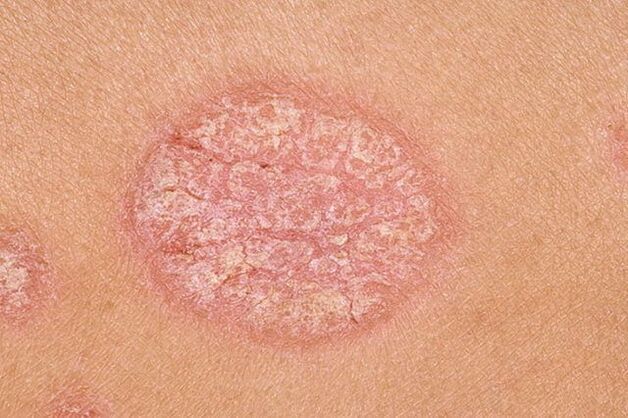Causes of aggravation and factors affecting recurrence manifestations

- Spring and summer sunlight has a positive effect on skin conditions and prevents the active progression of psoriasis. This is where the factor of treating your skin with UV rays and flooding your body with vitamin D comes into play. In winter, the light supply is insufficient.
- The activation of viral and bacterial infections in the cold season negatively affects the state of the immune system, which directly affects the skin.
- acute and sudden stress, progression of depression;
- excessive physical activity;
- long-term and uncontrolled drug use;
- climate change;
- Bacterial and viral infections of any nature;
- Skin damage (mechanical damage and insect bites);
- Failure to adhere to dietary habits;
- Refusal to take specific medications;
- disrupt metabolic processes;
- Physical intoxication (alcohol, infectious, poisonous substances).

signs of deterioration
- Rapid increase in the number and size of erythema over the body (localization may depend on the type of psoriasis);
- Terminal film appears on the surface of the affected skin;
- Development of unbearable itching and burning sensations (extreme degree - pain syndrome);
- Feeling dry, tight, and uncomfortable;
- The rash worsens and increases in area due to mechanical damage to the skin in the affected area;
- Flakes off, forming characteristic stearic stains.

Aggravated during pregnancy
- A painful and very itchy rash on the back, head, face, and groin area;
- Nausea, often accompanied by vomiting without relief;
- Decreased or decreased appetite;
- anxiety;
- sleep disorder;
- Increased body temperature.
Elevated cortisol levels may also trigger degeneration. In addition, this hormone can be released both before and after psoriasis worsens, while maintaining all the unpleasant symptoms of the disease. Therefore, treatment should also aim to reduce cortisol levels in pregnant women.
How long does the regression phase last?
How to prevent the progression of the disease during an exacerbation?
medical treatement
- sedative;
- NSAIDs;
- Hormone drugs (advanced cases);
- Multivitamin complex with vitamins B and D;
- immunomodulators;
- Antihistamines.
physiotherapy
- Ultrasound irradiation;
- magnet therapy;
- polyurethane;
- Phototherapy;
- Electrophoresis.
proper diet
- egg;
- citrus fruits and honey;
- whole milk (especially high-fat milk);
- red fruits and vegetables (especially without prior heat treatment);
- fatty and spicy additives and sauces;
- mushroom;
- Fast food and semi-finished products;
- Frying, fatting, salting, smoking, marinating.
Relief through fasting
- Drink only clean water during the day;
- Consume only one product (fruit or vegetable, dairy product).
Effective topical products
- Salicylic acid ointment. This product perfectly eliminates inflammatory processes, kills pathogenic bacteria, softens the skin, prevents dehydration and accelerates the regeneration process. The ointment is suitable for daily use even with extensive lesions.
- Tar-based ointments and creams. Tar itself has anti-inflammatory and antiseptic properties that help eliminate and prevent secondary infections. Ointments based on it also improve the overall condition of the skin and speed up its healing.
- Zinc and zinc salicylate ointment. They have a drying and healing effect, prevent the occurrence of new rashes and destroy pathogenic microorganisms. Patients prone to allergic reactions should use the ointment with caution.
Relieve scalp psoriasis symptoms
- The drug prevents the development of secondary fungal infections, eliminates skin peeling and itching, and regulates sebum secretion.
- This medicine allows you to quickly eliminate itching and flaking, relieve pain and irritation, and heal the skin.
- The shampoo is based on hot water, lactic acid and salicylic acid. It effectively removes excess fat, prevents its buildup, eliminates flaking and kills disease-causing bacteria.
- The product is based on medicinal herbs and birch tar extract. This shampoo accelerates the tissue regeneration process and regulates the formation of new skin cells. It is one of the safest on the list.
- This shampoo contains coal tar, which is known for its antibacterial properties. This product gets rid of pink spots on your scalp and prevents their recurrence.























